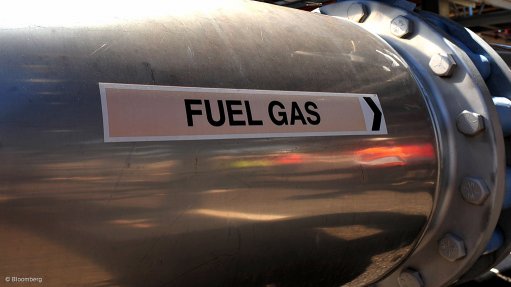
Photo by: Bloomberg
PERTH (miningweekly.com) – The Australian Petroleum Production and Exploration Association (Appea) on Tuesday lamented the New South Wales government’s restrictions on further coal seam gas (CSG) developments.
The state government has finalised CSG reforms, which it said would put safeguards in place for 5.3-million hectares of the state’s homes and high-quality farmland.
The reforms introduced a CSG exclusion zone to cover critical industry clusters, residential zones and seven rural villages and future growth areas. It meant that the CSG exclusion zones now applied to 2.7-million hectares in New South Wales.
A further 2.8-million hectares has been safeguarded, with the government saying that these included the most valuable farming land. The safeguards were in place to ensure that the impacts on land and water resources were considered up-front through the independent scientific Gateway process.
The state government also implemented critical industry clusters for 60 000 ha of viticulture land and 254 000 ha of equine land in the Upper Hunter.
“CSG exclusion zones are now in force for an estimated 95% of dwellings covered by current petroleum licences and tough regulations are also now in place for New South Wales’ most valuable agricultural land,” said Deputy Premier Andrew Stoner.
“We’ve consulted with the community to identify millions of hectares of biophysical strategic agricultural land and critical industry clusters, and today we have acted to ensure that this important land is formally recognised and safeguarded.”
However, Appea warned on Tuesday that the state government had further dented its credibility in the pursuit of science-based energy policy with the announcement of the latest restrictions.
Appea COO for the eastern region, Paul Fennelly, said that despite knowing that New South Wales imports 95% of its gas supply and that a failure to develop local supplies would lead to higher energy prices, the state government has again turned its back on the “proven record of science and industry”.
“It is not surprising to see New South Wales' reputation as a place to do business slipping.”
He pointed out that the Fraser Institute’s Global Petroleum Survey 2013, which examines barriers to investment in oil and gas exploration in 157 jurisdictions across the world, now ranked the state 145th when it came to the cost of “environmental regulations” and 127th in the category of “costs of regulatory compliance”.
“Notable jurisdictions ranking better than New South Wales now include Bolivia, Somaliland, Uzbekistan, Kyrgyzstan, Kazakhstan and South Sudan.
“Given that other Australian states are shown to be world leaders in effective and efficient petroleum regulation, these numbers should cause significant embarrassment for a government that claims to be ‘making New South Wales number one again’.”
Fennelly warned that the measures announced on Tuesday put a stranglehold on natural gas development, business investment, job creation, regional growth and small business opportunities.
“The state’s failure to allow development of its gas reserves means New South Wales now faces unnecessary energy risks. The government should urgently reconsider blanket exclusion of vast tracts of land from gas development.”